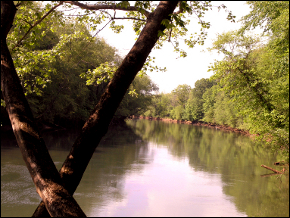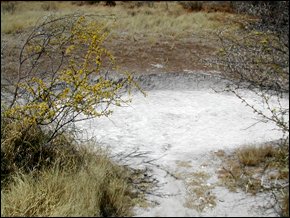Stakeholders Create Organization to Resolve Southern US Water Conflict
 Members from Alabama, Florida and Georgia hope that grassroots negotiations will spur a resolution from higher levels of government over Lake Lanier.
Members from Alabama, Florida and Georgia hope that grassroots negotiations will spur a resolution from higher levels of government over Lake Lanier.
Environmental groups, business organizations and power companies have united to form the ACF Stakeholders, a forum for discussing ways to resolve the 20-year impasse over the use of the Apalachicola-Chattahoochee-Flint river basin, the Atlanta Journal-Constitution reports.
Group members are unhappy with the inability of state and national government leaders to reach an agreement on the basin’s waters, which flow through Alabama, Georgia and Florida.
“It sort of looked like interminable politicking and legal action was going to be the culprit that would keep us from ever getting any headway until maybe the Supreme Court finally decides it,” said Dan Tonsmeire of the Apalachicola Riverkeeper, according to the Atlanta Journal-Constitution.
The organization’s mission is to create equitable and viable solutions to the conflict by increasing communication between stakeholders and arriving at consensus decisions, according to ACF Stakeholders’ website. More than 60 groups are involved, including the Metro Atlanta Chamber of Commerce, Georgia Power, the Lake Lanier Association and several city governments.
ACF Stakeholders is partnering with the U.S. Institute for Environmental Conflict Resolution – an independent federal agency – to help mediate the concerns of the various interest groups in the basin.
A U.S. District judge ruled in July 2009 that Atlanta was illegally using Lake Lanier as its drinking water supply. The judge ordered that Atlanta stop using the reservoir’s water within three years because the reservoir was not supposed to serve the region’s drinking water needs when it was built with federal money in the 1950s, the Atlanta Journal-Constitution reports.
The Army Corps of Engineers announced on November 18 that it would start restricting water withdrawals from Lake Lanier in 2012 unless the three states have reached a compromise with Congressional approval, the Atlanta Journal-Constitution reported.
Georgia is also involved in a border spat with Tennessee. The border was set at the 35th parallel in 1796, but Georgia argues that the line set down by surveyors in 1818 was one mile south of where it should have been. Moving the border north by one mile would put a bend of the Tennessee River inside Georgian territory, giving it access to some of the water. The Georgia General Assembly passed a bill supporting the redrawn border in February 2008.
The first meeting of the ACF Stakeholders governing board will take place December 10.
Source: Atlanta Journal-Constitution
Read more from Circle of Blue about water conflicts in the United States
Brett writes about agriculture, energy, infrastructure, and the politics and economics of water in the United States. He also writes the Federal Water Tap, Circle of Blue’s weekly digest of U.S. government water news. He is the winner of two Society of Environmental Journalists reporting awards, one of the top honors in American environmental journalism: first place for explanatory reporting for a series on septic system pollution in the United States(2016) and third place for beat reporting in a small market (2014). He received the Sierra Club’s Distinguished Service Award in 2018. Brett lives in Seattle, where he hikes the mountains and bakes pies. Contact Brett Walton









Leave a Reply
Want to join the discussion?Feel free to contribute!